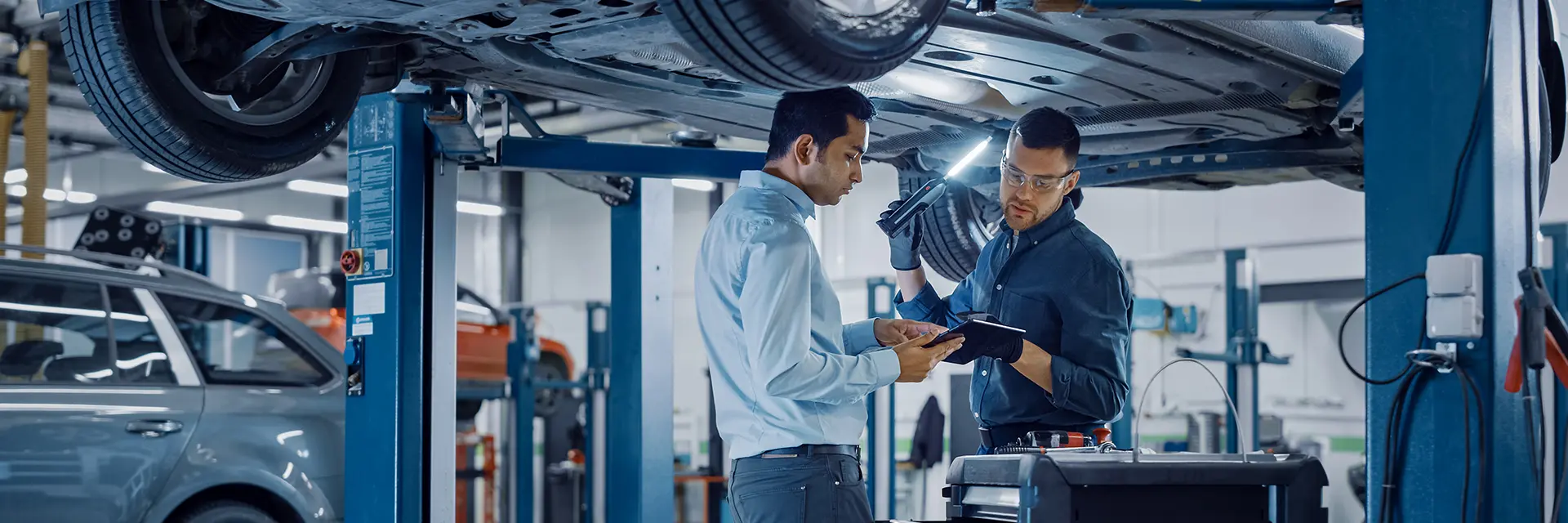The Importance of Regular Vehicle Inspections: What You Need to Know
Regular vehicle inspections are a crucial for safety, cost-effectiveness, and maintaining your vehicle's longevity. They go beyond routine maintenance tasks like oil changes and tire rotations, focusing on comprehensive checks that can uncover potential issues before they escalate into costly repairs or safety hazards. In this blog, we'll explore why regular vehicle inspections are essential, what they involve, and how they benefit both you and your car.
Why Are Regular Vehicle Inspections Important?
- Preventative Maintenance: Just as regular health check-ups are essential for your well-being, routine vehicle inspections help identify minor issues early. Addressing these issues promptly can prevent them from developing into major problems that could leave you stranded or facing expensive repairs.
- Safety Assurance: Ensuring your vehicle is safe to drive is paramount. Inspections help detect worn-out brake pads, faulty steering components, or tire wear that could compromise vehicle handling and passenger safety.
- Prolonged Vehicle Lifespan: By catching problems early and maintaining optimal performance, regular inspections contribute to prolonging your vehicle’s lifespan. A well-maintained car is more likely to serve you reliably for years to come.
- Maintaining Resale Value: If you plan to sell or trade-in your vehicle in the future, a documented history of regular inspections and maintenance can enhance its resale value. Prospective buyers value a well-maintained vehicle that demonstrates care and reliability.
What Do Vehicle Inspections Involve?
A comprehensive check for damage and wear and tear of the vehicle’s onboard systems and mechanical components. Typically a vehicle inspection covers the following areas:
- Brakes: Inspection of brake pads, rotors, calipers, and brake fluid levels to ensure effective braking performance.
- Suspension and Steering: Checking for wear or damage to shocks, struts, ball joints, tie rods, and steering components that could affect handling and stability.
- Tires: Examining tire tread depth, condition, and inflation levels to promote safe driving and optimal fuel efficiency.
- Fluids: Checking and topping up essential fluids such as engine oil, coolant, transmission fluid, brake fluid, and windshield washer fluid.
- Battery and Electrical System: Testing battery health, inspecting cables and terminals for corrosion, and checking the charging system for proper operation.
- Lights and Signals: Verifying the functionality of headlights, brake lights, turn signals, and hazard lights to ensure visibility and compliance with traffic laws.
- Exhaust System: Inspecting for leaks, damage, or excessive rust that could affect emissions and vehicle performance.
Benefits of Professional Inspections vs. DIY Checks
While DIY checks like monitoring tire pressure or checking fluid levels are beneficial between inspections, professional inspections offer several advantages:
- Expertise and Equipment: Certified technicians have the training, experience, and specialized tools to conduct thorough inspections and diagnose potential issues accurately.
- Comprehensive Evaluation: Professionals follow a structured inspection checklist that covers all critical components of your vehicle, ensuring nothing is overlooked.
- Warranty and Maintenance Plan Compliance: Regular professional inspections may be required to maintain warranty coverage or comply with vehicle maintenance plans recommended by manufacturers.
When Should You Schedule a Vehicle Inspection?
As Part of Routine Maintenance: Include vehicle inspections as part of your routine maintenance schedule, typically every 6 months or according to your vehicle manufacturer’s recommendations.
- Before Long Road Trips: If you're planning a long-distance journey, a pre-trip inspection can provide peace of mind and help prevent breakdowns far from home.
- After Significant Milestones: Schedule an inspection after reaching significant mileage milestones or if you notice changes in your vehicle’s performance, handling, or fuel efficiency.
Regular vehicle inspections are a proactive approach to maintaining your vehicle’s reliability, safety, and performance. By investing in routine inspections conducted by qualified professionals, you can identify and address potential issues early, ensuring your car remains in top condition. Whether it's for safety assurance, prolonging your vehicle’s lifespan, or maintaining resale value, regular inspections are a wise investment in your automotive health. Schedule your next inspection today to enjoy peace of mind on the road ahead.


